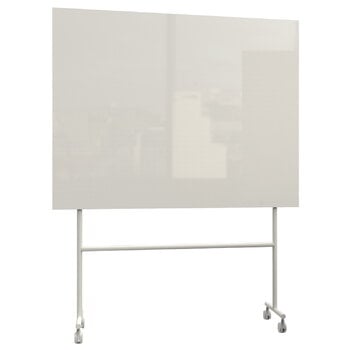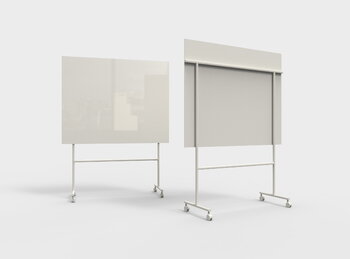Lintex’s Mono Mobile writing board is the ideal combination of functionality and beautifully minimalist design, perfect for the modern-day office. Unleash your creativity and jot down ideas, draw mind maps or put up notes with magnets – the movable board is perfect for collaborative work and brainstorming together with your team!
The whiteboard is made of Lintex’s tempered Mood glass that, due to its low iron content, has no greenish tint at all, allowing the board’s colour to always look bright and clear. Please note that a glassboard requires stronger magnets than a regular whiteboard.










